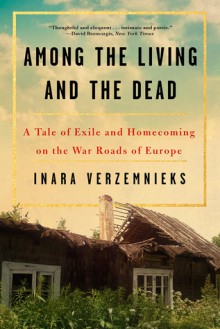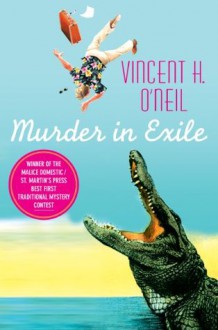
This is a lovely multigenerational memoir. The author is the daughter and granddaughter of Latvian refugees who fled their home country at the end of WWII, and she returns to Latvia after her the death of the grandmother who raised her to learn more about the country and her family’s stories. Much of the book traces the lives of her grandmother – raised on a farm she would forever idealize, before going to school, moving to the city, and ultimately fleeing across war-torn Europe with her two young children, not knowing whether her conscripted husband was dead or alive – and her grandmother’s younger sister, who was trapped on the farm by the war, then deported to Siberia with her family, to finally return and pick up the pieces all over again. Separated for fifty years, the sisters both seemed to envy the other: Ausma envies the glamorous older sister who got away, while Livija, who finally lands in Tacoma, lives in the past, clinging to the Latvian community in exile and raising her granddaughter in its traditions.
It’s a lovely, thoughtful, atmospheric and emotionally rich memoir, and quite comprehensive for its length, with diversions into Latvian history recent and remote and even geological, but always centered on the family and the countryside they both love intensely and often want or need to escape. The artsiness of the writing style was a bit of a stumbling block for me in the beginning – this is definitely an MFA memoir – but by the end I felt the literary style helps distinguish the book. And I appreciated the author’s reckoning with complex topics, such as how those men, including her own grandfather, who were conscripted into the Latvian Legion – meaning they were fighting for the Nazis, but against the Soviets – should be judged. I felt throughout that the author was searching for truth and comfortable with nuance. And of course, I was especially thrilled to find a high-quality book about Latvia, a country rarely featured in literature. I recommend it.

 Log in with Facebook
Log in with Facebook 













